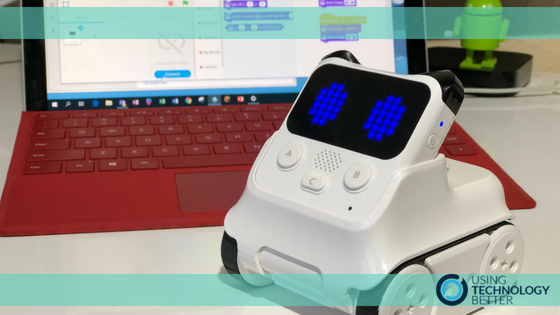If you’re a teacher in a classroom these days, it’s pretty hard to not know about the need to get students engaged with coding, robotics, and the new buzz words floating around at the moment, ‘Invention Literacy.’
But the biggest question we always get asked, through the work we do as digital learning specialists in schools, is ‘What robotics tool should we buy for our class?’ And the second most asked question would be, ‘What would be a good robot for my junior class?’ Well – here’s a great option that would cover both of those questions.
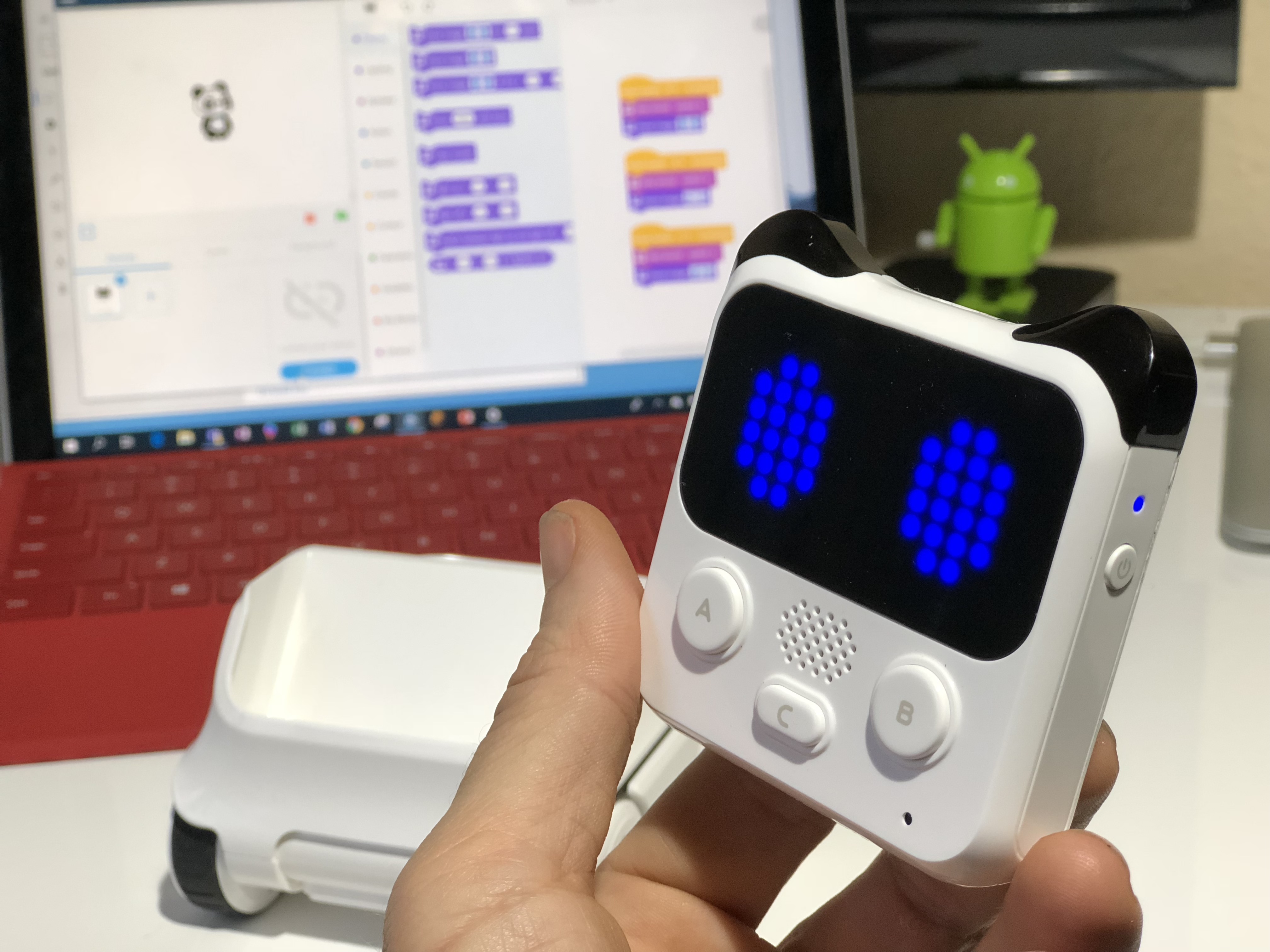
This review is about Makeblock’s new addition to their robotics lineup, the ‘Codey Rocky’, which the team at Makeblock have been kind enough to give me an advance trial of. I’ll be weighing the Codey Rocky up against five criteria that I always recommend teachers think about when they are looking at digital tools. Pretty simply, they are;
⁃ Scalability
⁃ Reliability
⁃ Durability
⁃ Modularity
⁃ Cool factor
[bctt tweet=”Are you looking for a coding tool for your classroom, that has great scale, reliability and is durable? Check out our review of the @makeblock #CodeyRocky” username=”markherringnz”]
1. Scalability
So, our first one, scalability, is all about the age and ability range that the tool can be used with. Is it able to challenge young students, right up to older ones? Can it be challenging for students will low levels of skills right up to students with high levels of skills? In my opinion, the best tools can be adapted through multiple levels. Especially as schools often have limited budgets and will want their dollars to stretch as far as they can.
The first thing you notice about Codey is that it just looks so totally cute! You only have to see students’ reactions to it to know that people just bond with it super quickly. It’s got the cute factor, that’s for sure. I’ve also seen research (don’t ask me where) that suggests that girls are more likely to be drawn into a coding tool if it has some kind of personality attached to it. Kids love this panda looking robot and from my experience, it just hooks people right in!
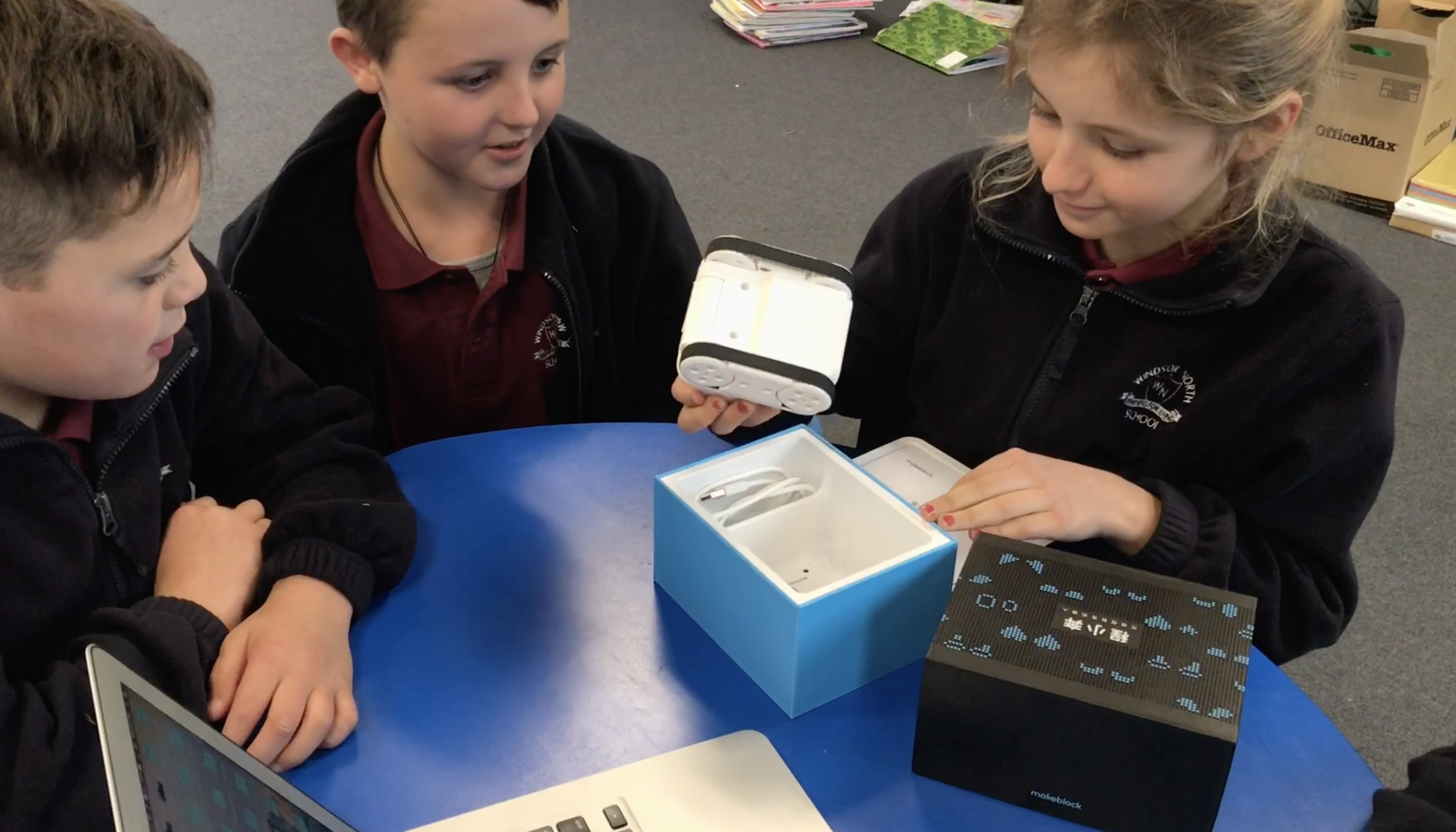
So how about scaling up the ability? The main interface for the code, a program you can download, is called Mblock and is super easy for young children to just ‘drag and drop’. They can adapt pre-made coding programs very easily and transition into making their own coding algorithms pretty quickly.
How about older students? Well, on the face of it, Codey Rocky looks like a younger student’s tool but, looks can be deceiving. The main console of the Cody Rockey can be attached to the invention tools from Makeblock called Neuron, which allows it to become part of some pretty sophisticated inventions. This is especially so once you connect it to WIFI and the, ‘If this, then that’, recipes you can adapt make the Codey Rockey into an ‘Internet of things’ tool. It could be designed, for example to measure the moisture of some soil, and send you a text message when the levels get too low. How cool is that! This is aside from the ability to have students code using the JavaScript mode inside MBlock. The scalability is very high. So, for scalability, I’d give it a 4 out 5.
2.Reliability
The next criteria, reliability, is such an important aspect for most teachers. If you have experienced what it’s like to have a class learning ‘flow’ interrupted by the fact that a tool just won’t work… then you know what I mean. We need classroom tools that work pretty much 100% of the time, taking out human error.
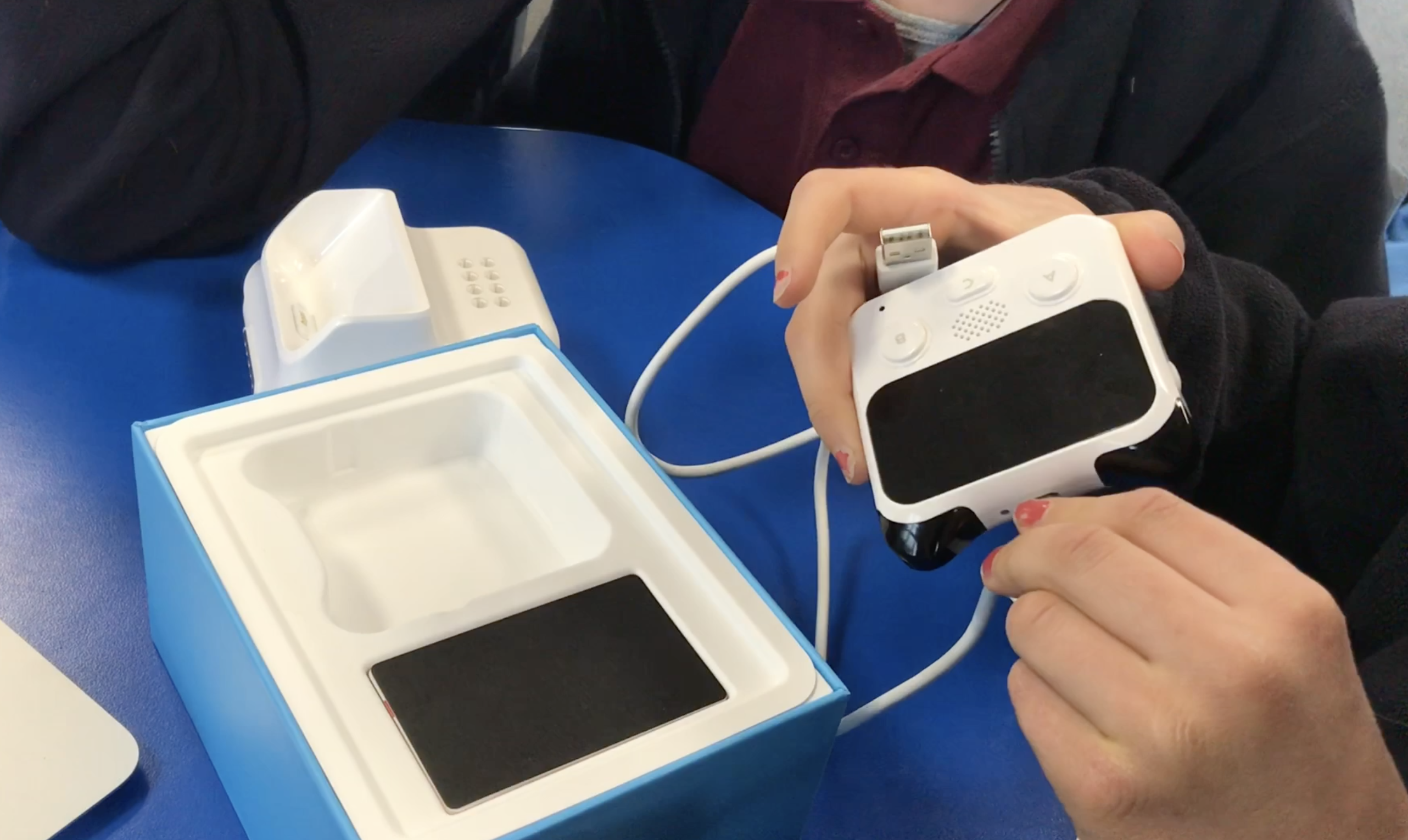
To be honest, I’ve found the Codey to be extremely close to faultless so far. I did have issues getting it connected to my MacBook Pro, but that could be something to do with the dreaded USB C adapter issue that any MacBook user knows about. Connecting to my Surface Pro was as simple as could be, and the buttons and charging cable seem to work flawlessly. The MBlock5 program is currently available on a Mac, Windows 10 and the Google Chrome Web Store so it will work with any laptop or Chrome Book.
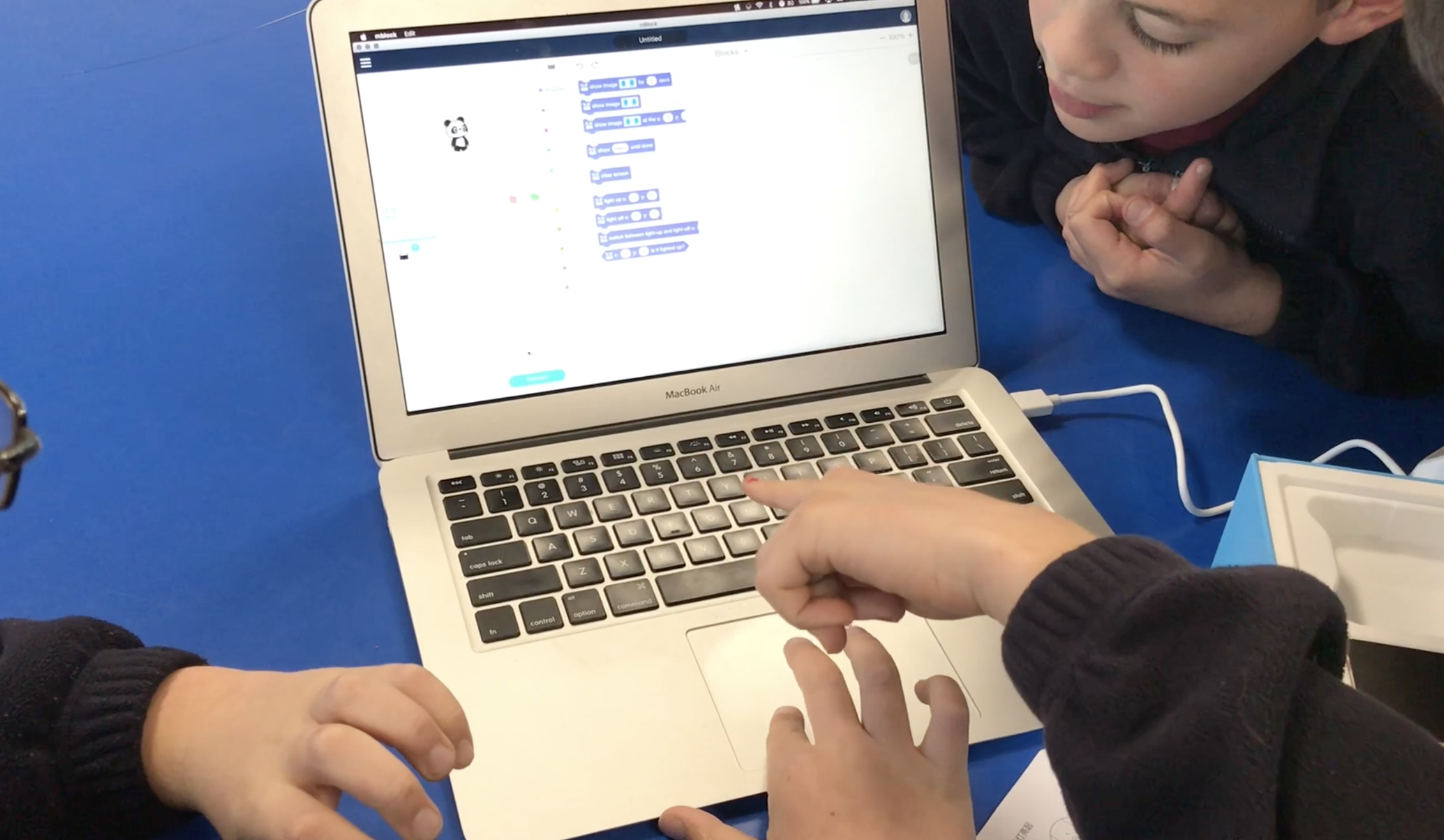
At the moment I’d give reliability a 4 but pretty close to a 5 if I solve this MacBook connection issue.
3.Durability
So how durable is Codey? Well, just look at the images of the build quality, especially the hardened plastic shell and the bullet proof tractor tread. I don’t think, save covering it with foam or bubble wrap, you’d have a design that was more ‘kid proof’. I haven’t been game to let my only Codey be pushed off a table to test it, but I’d imagine it would be pretty robust. The buttons, the wheels and the casing seems pretty solid and kid friendly. I’d have to give it a 4 out of 5 for that as well. The only tool I’ve ever seen that I’d give a 5 is the Sphero SPRK+ but that robot can take weight of up to 110KGs, so it’s a high benchmark to reach. I’m very impressed with the Codey Rocky’s build quality!
[bctt tweet=”The @makeblock Codey Rocky is one of the most durable STEAM tools for coding out there at the moment! Perfect for junior through to middle students.” username=”markherringnz”]
4.Modularity
When I talk about modularity I’m looking for the ability of a tool to be added to, adapted and reinvented. How creative can we get with the Codey and get it to help us invent stuff? Well, on its own, there are so many uses for automating it with Codey’s movement, its obstacle avoidance, line tracking… it goes on. But the creativity goes to another level when you combine the Codey with the Neuron tools, as I explained above. Through the magnetic connections of the modules in the Neuron kits, the sky seems like it would be the limit.
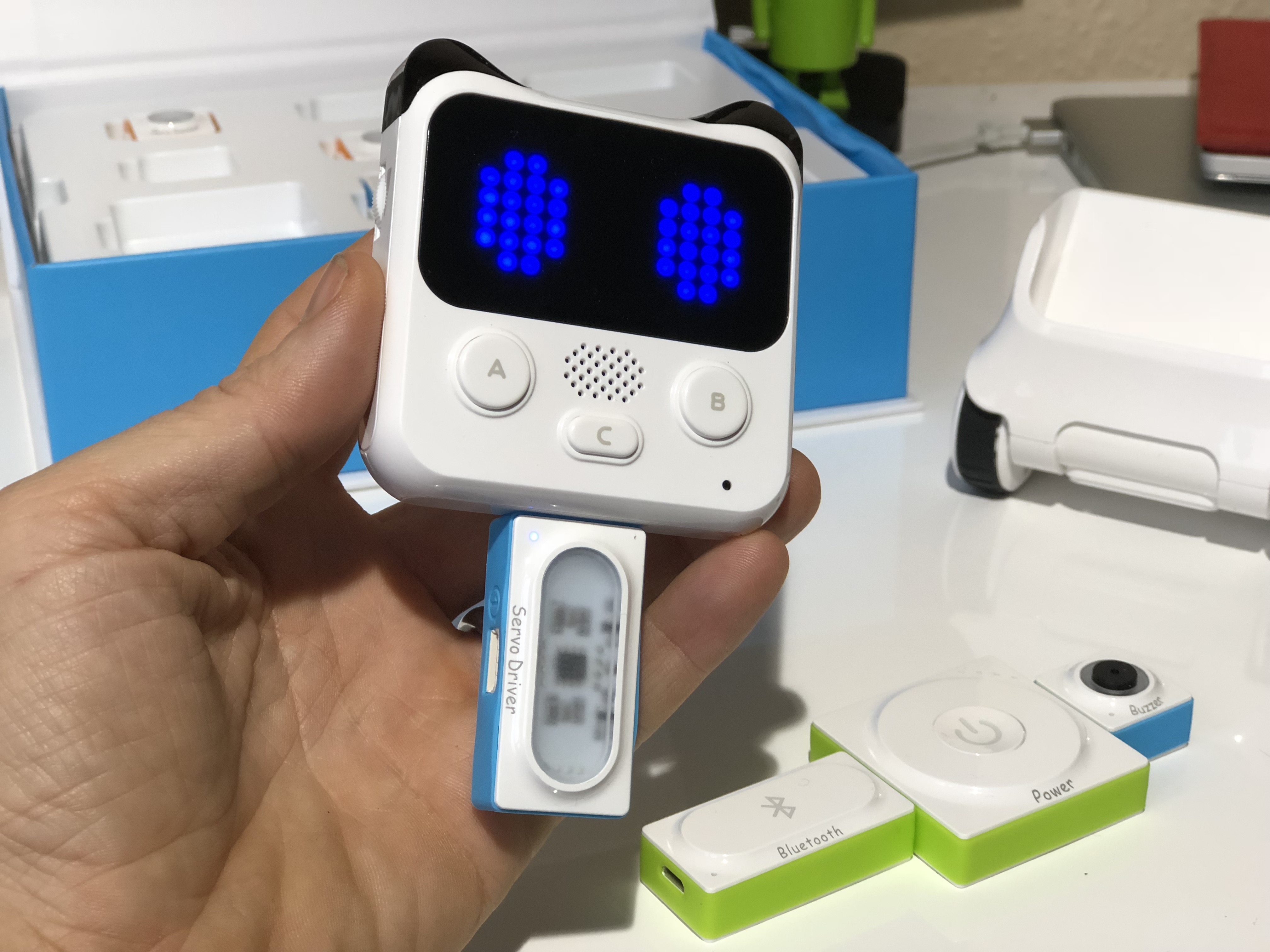
The Neuron kit comes with these invention cards to get you started and they help you learn what each component does, but once you’ve got these skills under your belt, there’s no end to what you could create. I’m a huge advocate for schools to have adaptable, modular tools and this totally fits the bill. You don’t want one trick ponies – the Codey is not that!
So, again, I’d give it a 4 out of 5 again – notice a pattern! The only thing letting it down is the ability to get inside and hack the components, like the main circuit board, wiring etc. But – for some teachers, that would seem like a bonus! There would absolutely be less room for things to go wrong. You all know that one student who takes something apart and then walks away!
5.The Cool Factor
The last category is the cool factor! This is important; you need this to really grab students’ attention and pull them in. Now, I know that most of the engagement will come from the way the teacher frames an experience, the dynamics of a group and so many more factors but hey, who doesn’t want tools to be awesome looking? I think, from an aesthetics point of view, the Codey would appeal more to younger students. I can’t image hard core high school or college student being that stoked about getting their hands on it. But that’s not the main market. You can tell that this is designed for younger students. It’s so cute and looks just like a Panda with those cute, big eyes. But you just have to see the reaction when primary and elementary students see this for the first time. They love it. I think it has great cool factor but that just depends on the age. So, for cool factor, I’d give it a 3 out of 5.
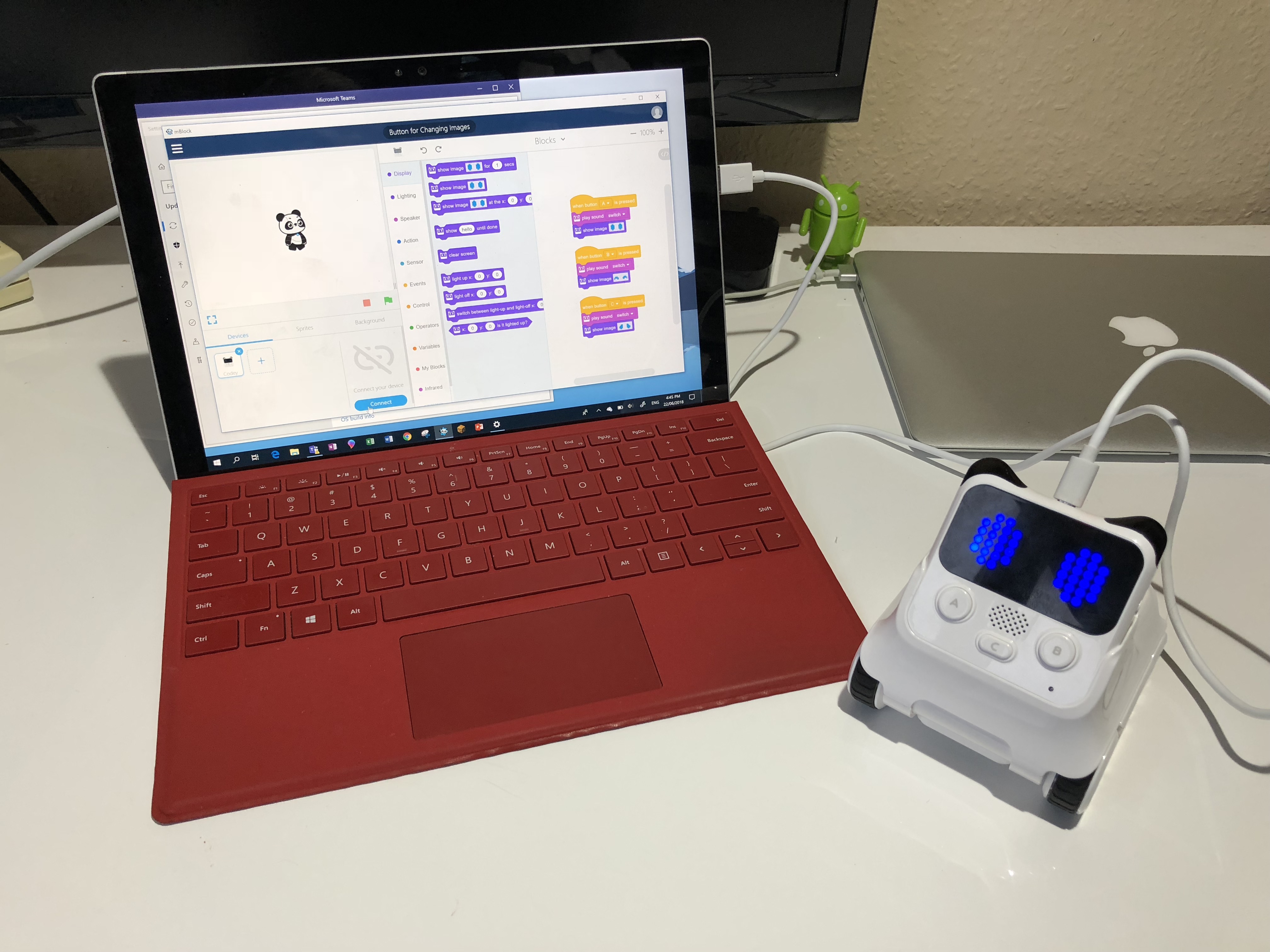
Overall
So, to wrap this up, we’d have to give the Codey Rocky a 19 out of 25. That’s a pretty brilliant score for a robotics tool that costs relatively little compared to its usability. This is a fantastic little robot and we’d definitely recommend it if you’re after a a coding activity to use with Elementary or Primary students and want something durable, scalable and just plain cute! To check out more information about specific specs and information, visit the Makeblock Codey Rocky site here.
If you found this review helpful and would like to get in touch about how we can support you and your school, contact us here on support@usingtechnologybetter.com, or have a look at our training options here on our website with our upcoming events.







